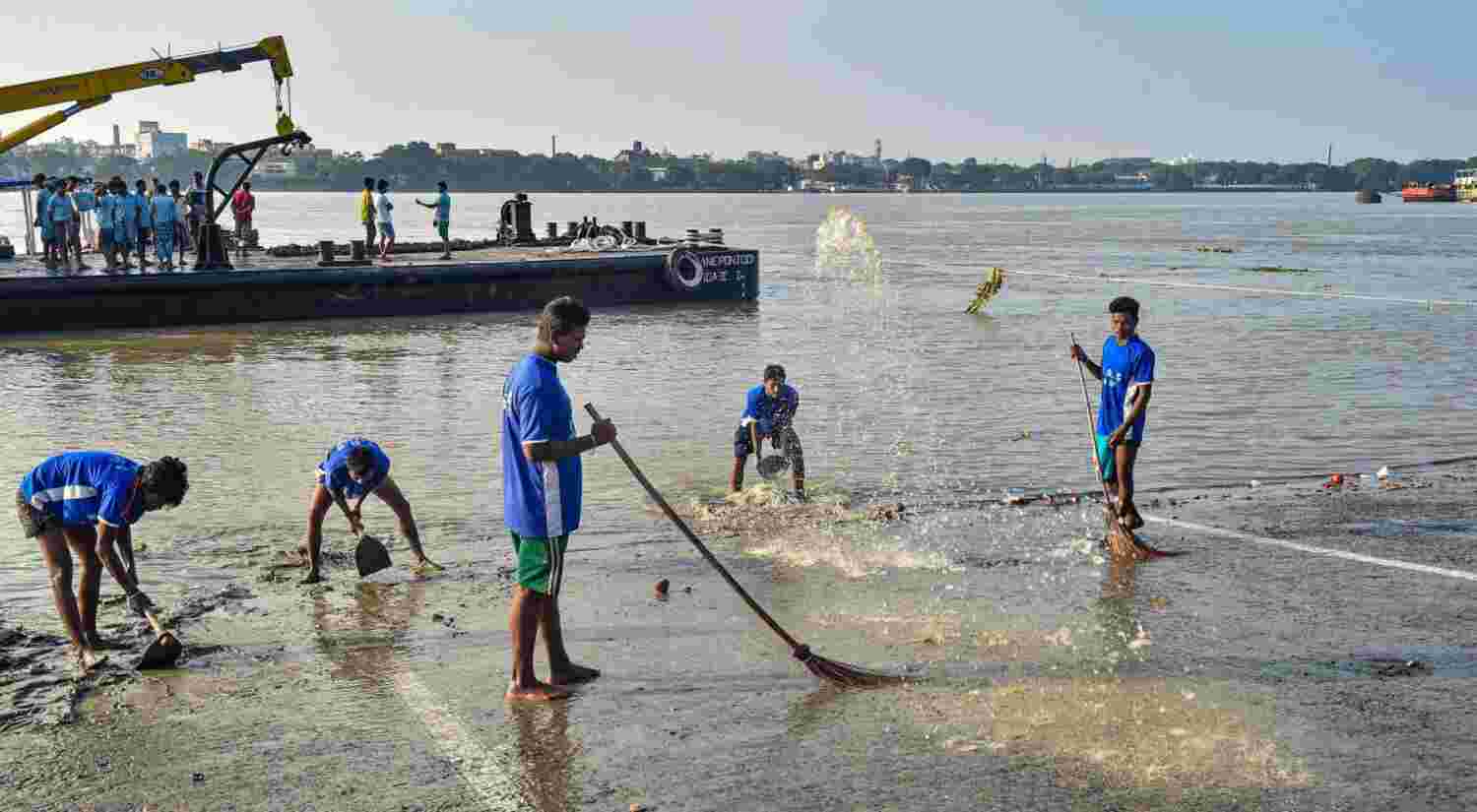Making a difference

India can build upon its cultural ethos to rethink its priorities in the post-Covid world — leading the fight for climate change
'The future has declared war on the present' was the theme of Nolan's masterpiece 'Tenet'. Nobody could have guessed that the war has been waged to avenge generational wrongs in the form of drying wells, unclean air and climate change. Even though the plot of the movie is confounding for even a physicist, the reason for war immediately strikes a chord as climate change is real, challenging and damaging to our ecosystems. Addressing the challenge of degrading the environment is no longer a matter of discretion, it is rather our obligation towards future generations.
The frequent instances of forest fires, flash floods, cold waves, extreme weather conditions are grim indicators of undergoing climate change due to increased human interference. On top of that, the present pandemic has come as a shock to the entire humanity, jolting it out of its deep slumber. We are living through historic times as the ravaging pandemic is making the entire humanity rethink its priorities. There is, however, a silver lining amidst this gloom as the pandemic provides an opportunity to jumpstart economies with re-aligned recovery plans focusing on climate change and environmental conservation. Clear blue skies, chirping birds and frolicking dolphins during the pandemic period as a result of reduced human activity have made us realize that it is indeed possible to restore earth with concerted efforts. It is high time that we pledge to ourselves and to each other on International Earth Day, April 22, to "Restore our Earth."
Indian cultural ethos has always advocated a harmonious relationship with nature which is founded in necessity rather than greed. Our ancient scriptures mention how our life systems are a result of a blend of five natural elements (panchtatvas) viz. 'Prithvi' (Earth), 'Vayu' (Air), 'Jal' (Water), 'Agni' (Fire), 'Akash' (Sky). The divine nature of mother earth is beautifully brought out in 'Bhoomi Sukta' of Atharva Veda:
Salutations to Mother Earth: In Her is woven together ocean and river waters; in Her is contained food which She manifests when ploughed: In Her indeed is alive all lives; may She bestow us with that life.
At a time when developed nations are failing to live up to expectations, India has shown the way and taken pathbreaking initiatives to show its resolve towards restoring mother Earth. Developed nations have historical responsibility as they have contributed the bulk of emissions over hundreds of years. Even though we have not caused this problem, as a responsible nation we are taking part in the solution.
Under PM Modi's leadership, we have launched many flagship schemes and are on our way to achieve Paris Agreement commitments well before the deadline of 2030. One of the most ambitious and successful initiatives during independent India's history has been Swachh Bharat Mission (SBM). SBM brought about major behavioural and structural changes by eliminating open defecation across the country. It has not only helped in infrastructural developments, but has also emerged as a platform for community engagement which, by working with local people, civil societies, and the state has brought about a tremendous transformation across the country. Swachh Bharat Mission has managed to reap dual benefits. It has helped in combating the problem of open defecation and sanitation, and with it, it has also helped in bringing about significant changes in the patterns of solid and liquid waste management in both rural and urban areas. Having achieved ODF (open defecation free) status, we are now well on our way to achieve ODF+ status, which aims at solid and liquid waste management.
The present government has realized the value of water in our lives and our ecosystem. Efforts to clean River Ganga have received a never-seen-before boost in the form of the Namami Gange Programme. As a result, the entire Ganga ecosystem is now springing back to life again which is evident from the increased sighting of Gangetic dolphins. Groundwater management (Atal Bhujal Yojana) and water conservation efforts (catch the rain) are being taken up in mission mode to manage the entire lifecycle of water.
As part of the Ujjwala Scheme, eight crore Indian households, especially the rural and those below the poverty line, have been provided with access to clean fuel. This has contributed tremendously to the reduction of carbon emissions through switching to sustainable, eco-friendly alternatives. Similarly, the UJALA scheme has led to the distribution of 31 crore LEDs thereby directly leading to a reduction in CO2 emissions. India is rapidly diversifying its sources of energy and has self-imposed an ambitious renewable energy target of 450GW by 2030.
Restoration of degraded lands, water bodies and wastelands have shown steady progress in achieving Land Degradation Neutrality, committed under the G20 summit. The government's efforts have helped in river surface cleaning, conserving biodiversity, afforestation, and groundwater recharge in addition to promoting sustainable management of groundwater. Through its human-centric approach and interventions, the Government will be able to meet and go beyond the targets set at the Paris Agreement of 2015.
Mahatma Gandhi once famously said, "The earth, the air, the land, and the water are not an inheritance from our forefathers but a loan from our children. So, we have to hand it over to them at least as it was handed over to us." The responsibility to protect mother Earth lies with each one of us. Let us promise to leave a healthy and greener planet through our sustainable practices for our progeny.
The writer is the Hon'ble Minister of State for Social Justice & Empowerment and Jal Shakti. Views expressed are personal



